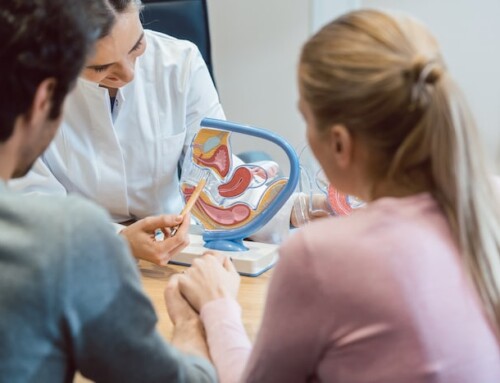From your initial email enquiry to boarding the flight out to Cyprus, your first round of IVF is likely to hold a lot of hope, uncertainties and perhaps concerns. You’ll have read all about it, talked about it, probably compared notes with fellow IVF-ers, but until you actually go through it you won’t know how it feels. However, plenty of people have done it before and they can tell you what to expect.
From the start
How you feel about your IVF treatment will probably depend upon your reasons for going forward with it. For some it’s after recurrent miscarriage and for others it’s on medical advice for certain reasons. Whatever your own reason is, trying to maintain a positive, relaxed state of mind and looking after your mind and body as much as possible is a good idea.
There will be a few steps in your first round of IVF at the Cyprus IVF Centre and the first one will involve ‘switching off’ your own hormones and cycle so that they can be controlled by medication instead.
If you are using your own eggs, you’ll need to have some fertility tests before you fly out to Cyprus. The purpose of these is to give an accurate snapshot of your ovarian reserve and general fertility status before you start medication which allows for the best preparation possible. You’ll have a blood test on day 2, 3 or 4 of your cycle. These must be carried out between one and six months before you arrive at the Cyprus IVF Centre. The blood test checks your levels of:
- FSH (follicle stimulating hormone)
- LH (luteinising hormone)
- AMH (anti-mullerian hormone)
- TSH (thyroid stimulating hormone)
- E2 (oestradiol)
- Prolactin
At the same time, you’ll also have an ultrasound scan of your ovaries which checks your antral follicle count. It will be trans-vaginal, so not the most pleasant thing to do when you have your period, but this gives as accurate a picture as possible as to what’s going on with your ovaries. It’s important to have the scan while on your period because in the later stage of the cycle some of the follicles will dissolve and wouldn’t be seen on a scan.
The results of these tests determine whether or not you can use your own eggs for treatment.
Medications for your first cycle of IVF
Many women then begin taking an oral contraceptive, which may seem counter-intuitive when you’re trying to become pregnant, but what it actually does is reduce the communication between your pituitary gland and your reproductive organs. This creates a regulated cycle which not only allows for a pinpointed period start date, but it also makes things like planning your stay in Cyprus and booking flights and hotel accommodation ahead of time much easier.
The medicines that you will be prescribed by the Cyprus IVF Centre include:
a) Gonadotrophins. These stimulate the ovaries and are taken in the form of an injection, once a day, between days 2-11 of your cycle.
b) Cetrotide. This is to prevent ovulation and is an injection once a day between days 6-11.
At this point, you may start to feel mildly uncomfortable. Your ovaries are being stimulated to produce more follicles than normal and they can swell in size, creating discomfort. You may be slightly bruised from the injections and you may put on some weight. The medications can also cause mood swings which are entirely normal, but it’s important to be kind to yourself. If you are unsure about any of the side effects, you can contact your Team Miracle patient coordinator and they will reassure you and provide advice.
Generally, you’ll travel to Cyprus on day 10 of your cycle, unless you’ve chosen to have your entire treatment cycle done at the Cyprus IVF Centre, in which case you’ll arrive on day 1. You’ll check into your hotel and a patient co-ordinator will contact you that evening to make travel arrangements to the clinic for the following day. On your much anticipated first day at the hospital, you’ll meet Team Miracle. You’ll be given another scan and then, if your follicles are ready, you’ll be given an HCG injection. Exactly 36 hours after this injection your egg retrieval will take place. You’ll be under a light anaesthetic for this procedure though it’s over quickly and then you can return to your hotel to rest. The eggs will then be injected with sperm via ICSI which is a standard treatment at the Cyprus IVF Centre because it produces a marked increase in the number of eggs which fertilise.
If you have opted to use the EmbryoScope Time Lapse Imaging Incubator, the fertilised oocytes will be placed in an EmbryoSlide and inserted into the incubator. They will remain there for the full duration of their development and will not be removed unless a PGD biopsy is required. The development will be monitored through time-lapsed images which are taken every 10 minutes throughout the 5-day development period. You will be sent daily videos of your embryos by your Team Miracle coordinator.
If you are not using the EmbryoScope, the embryos will be placed in one of our high-tech benchtop incubators. They will be incubated for 24 hours and then removed and assessed by an embryologist to determine if fertilisation has occurred. They will be returned to the incubator and left to develop undisturbed until transfer stage which takes place either on day 3 or day 5. Team Miracle will discuss with you what’s best, but it’s often a good idea to wait until day 5.
Once your embryo transfer has taken place you can fly home immediately, but you’re generally advised to wait at least a night. Many women prefer to stay longer to rest and recover after the procedures without the demands of daily life. If you’ve chosen one of our travel packages you will probably have more of a holiday planned on the beautiful island of Cyprus.
After twelve days you can check for pregnancy via a HCG blood test, or at 14 days you can use a urine test. Whatever the results of your test, our patient co-ordinators will be on hand for help, support and advice. Remember – the basics of IVF are the same for most women but things like medication protocols, timings and your feelings and emotions will make your cycle unique to you.






